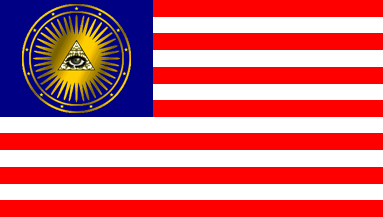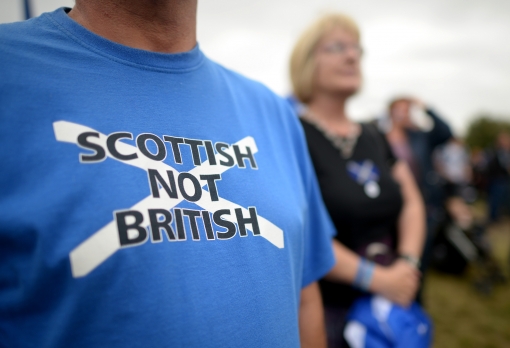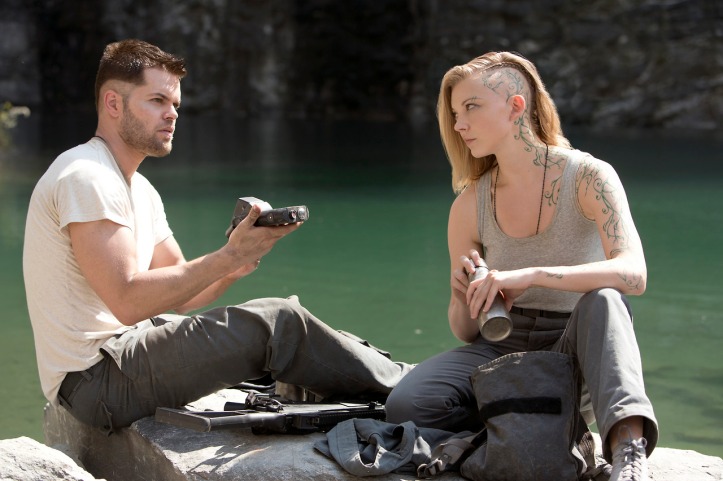Kia Ora!
This is a blog version of a paper I presented in Newcastle this week at a Dystopian Literature conference. It’s called ‘Can a song change a nation? Music and verse in dystopian literature’ and focuses on The Hunger Games trilogy by Suzanne Collins and The Handmaid’s Tale by Margaret Atwood against the case study of Scotland during the 2014 independence referendum. Doesn’t sound like it makes sense but go with me for a bit – I promise it will 🙂
A special heads up to Mrs Carrell and the English class of 2007 for not requiring too much re-reading of Atwood!
My name is Sarah Paterson, I’m a PhD student at the University of Glasgow researching the role of writers in the 2014 Scottish independence referendum. The referendum was a political event that saw new heights of political engagement in Scotland but also in the UK. The upcoming General Election may prove to be an opportunity to continue this level of engagement, and artists and writers have been at the forefront of this phenomenon.
From Scots Makar (Poet Laureate) Liz Lochhead’s controversial decision to join the Scottish National Party, to J.K. Rowling’s use of her own fortune and novels to demonstrate opposition to independence, artists have played a new and intriguing part in this contemporary discussion of what makes a nation.
In this paper I will consider the role of music and verse in Margaret Atwood’s The Handmaid’s Tale and the Hunger Games trilogy by Suzanne Collins in comparison to the real world example of Scotland in 2014. I’m going to focus particularly on three areas, firstly the place of the bard figure in dystopian fiction, then the concept of banning art and finally on the impact of symbols in political propaganda.
Atwood, describing her novel The Handmaid’s Tale, famously assured us, ‘There’s nothing in the book that hasn’t already happened.’ A terrifying thought for anyone familiar with the state of Gilead. Dystopian fiction at its most unsettling mirrors what we know to be true of humanity’s past or present. The Brave New Worlds of dystopian fiction, must not, in fact, be new at all. But is this just as true for the artists represented in dystopian fiction as well as for the perpetrators of oppression, genocide or totalitarianism

Atwood and Collins each set their novels in a nightmarish future version of North America, dramatically reduced in size and population due to environmental disaster and ruthlessly controlled by an elite class. Atwood’s Gilead is named for a significant region in the Bible, and Collins’ Panem takes its name from Panem et circensis, an often used phrase from the Roman Empire referring to ‘bread and circuses’.

The stories of Gilead and Panem are told from the first person perspective, each story concluding with the revelation that the protagonist is occupying the role of Bard to their nation, telling their stories for the benefit of future generations. Offred, the protagonist of The Handmaid’s Tale, is telling us her story in exile over cassette tapes (remember those?), and frequently departs from her narrative in order to remember details of her former life, preserving it for herself and, as we learn in the Epilogue, for future generations. For instance, she remembers the smell of nail polish, “endless white plastic shopping bags”, “each blouse, each scarf” that she wore when her affair with Luke began, and, crucially excerpts of music:
“Amazing Grace how sweet the sound
Could save a wretch like me
Who once was lost but now I’m found
was bound but now I’m free
I don’t know if the words are right, I can’t remember. Such songs are not sung anymore in public, especially the ones which use words like free. They belong to outlawed sects.” – The Handmaid’s Tale, p. 59.
Likewise Katniss, protagonist of The Hunger Games, rediscovers her voice through singing and through a book of words and illustrations that remember her experiences, significant for their details just like Offred’s recollections:
“The place where we recorded those things you cannot trust to memory… all the details it would be a crime to forget.” – Mockingjay, p. 435
If we bring this into the context of Scotland in 2014, the Bard figure is again absolutely essential because they remember such details – or forget others – and so we frame our national narrative around them. Both the pro-independence campaign and the pro-Union campaign pillaged the work of various Bards for their purposes to prove variously the benefits of Scottish culture or British culture.
Because as much as the official narrative coming from campaigns was that this was a decision for which we had to try and put emotions aside, the reality is that alongside all the facts, figures and statistics bombarding the Scottish public for nearly 2 years, this was a competition between two forms of nationalism.
To quote Frankie Boyle: “There have already been a couple of amusing moments in the campaign when leaders standing in front of union jacks expounding on the need for a £100bn missile system have taken time out to warn us about the dangers of nationalism.” Many theorists of nationalism, if not the majority, will argue that nationalism cannot exist without creative culture. In Anthony D. Smith’s seminal work on national identity, he defines western nationalism as “culture communities, whose members were united, if not made homogenous, by common historical memories, myths, symbols and traditions” (National Identity p. 11). During her lifetime Katniss becomes all of these things, as does Offred after her death. This is why Atwood’s Epilogue – a lecturer in 2195 discussing the narrative she left – is so clever, because it shows the afterlife of the Bard, and how she has come to represent an entire civilisation, despite her position as an oppressed member of that world.
In the context of our two novels the Bard is essential because they recall music and therefore culture and stories that have been banned by the establishment. Both Offred and Katniss are, quite naturally, drawn to the music and verse that has been forbidden to them. Offred deliberately recalls songs both relevant to her situation and which have been outlawed. Katniss can only recall the words to the all-important “Hanging Tree Song” which I will discuss in a moment, because it has been banned.
Her mother bans the song and she does not sing it aloud for 10 years: “So, of course, every word was immediately, irrevocably branded into my brain” (Mockingjay p.140). Once again it is not difficult to align this with our real world example of Scotland during the referendum. Some – if not the majority – of Scotland’s most enduring national symbols were appropriated by Lowlanders in the 19th century having been banned in the Acts of 1746 following the Jacobite rebellion. Scots were no longer allowed titles and weapons (some elements of which remain to this day), but also kilts and tartan. These acts also lead to the decline of Highland cultural icons such as the bagpipe which was also reclaimed later in the 19th century, by a writer, Sir Walter Scott.
It is intriguing how frequently we rely on a Bard figure to relay events in dystopian fiction. We could add to Atwood and Collins the examples of Russell Hoban’s Riddley Walker or Ursula le Guin’s cast of scribes in Always Coming Home to name just two. In these texts the act of writing and recording is paramount and, as with Atwood and Collins, the writer’s knowledge that the act of writing is necessary for their fellow citizens and descendants is a keenly felt primary motivation for the narrators to tell their stories in the first place.
Why is the Bard such a key figure in dystopian fiction? I propose that this reflects reality. To discover the history of a fictional world, we need a trustworthy voice parallel to those in our non-fictional world. Official arbiters of truth: governments, professionals, educators etc. are not to be trusted in dystopias, precisely because it is the distrustworthy and propagandist nature of these institutions that writers of dystopian fiction wish to allude to in their works; hence the prevalence of the Bard narrator in dystopian fiction. Having been introduced to worlds where rape is compulsory or children are murdered for entertainment, the highly literate and broadly impartial Bard figure becomes the only voice we can trust when most of the other characters we encounter are either part of the establishment elite or wilfully ignorant slaves to the establishment. The eponymous Handmaid, Offred, was a librarian in pre-Gilead USA. Beyond her family, Offred’s deepest yearning throughout the novel is for the printed word:
“But all around the walls there are bookcases. They’re filled with books. Books and books and books, right out in plain view, no locks, no boxes. No wonder we can’t come in here. It’s an oasis of the forbidden. (p. 139)
Katniss Everdeen of The Hunger Games trilogy finds her primary abilities (apart from her prodigious survival skills) are in the preservation and performance of folk songs and traditions. Ultimately this is the only thing that prevents her from committing suicide:
“Hour after hour of ballads, love songs, mountain airs… What’s amazing is how clearly I remember them” (p. 423). The Bard, the artist, the preservers of folk tradition, are roles that the reader trusts, and so they become essential if we are to understand an entirely fictitious world of which we can have no prior knowledge.
However, if we take a closer look at how creative art is treated more widely in these novels, I believe we start to see a more significant reason for the centrality of the Bard figure. In Gilead and Panem, music and verse are used as primary weapons in the state arsenal for both social control and rebellion against that control. In the case of the establishment, Panem’s anthem is apparently the only piece of music most residents ever get to hear that is not outright revolutionary, and it recurs frequently, usually as an instrument of fear and control. In Gilead access to literature or music of any kind is brutally regulated, women being completely forbidden from either. This is particular torture for literary Offred, who wryly manipulates Freud’s ‘Penis Envy’ phrase into ‘Pen. Is. Envy’, summing up much of the novel’s context. In both of these contexts, music and literature are powerful weapons, withheld from the majority of the populations of Gilead and Panem.
Music and verse are not the exclusive weapons of those seeking social control in these worlds, however, and also become the primary methods of social protest. In the immortal words of Steve Biko, “The most powerful weapon in the hands of the oppressor is the minds of the oppressed.”
So powerful is the depiction of art as a force for dramatic social change that in December 2014, Hunger Games actress, Jennifer Lawrence, became an unlikely chart-topper when a song from the third instalment of the film franchise became a worldwide hit. In the context of the film, the song ‘The Hanging Tree’, is broadcast throughout the restless Panem and provides the tipping point the rebellion were seeking. Here it is worth pointing out that Suzanne Collins, who wrote the screenplay of the film, departs from her original novel in her treatment of this song. In the film the song is so powerful that it actually tips the balance between victory and defeat for the rebels. If we accept the thesis that in dystopian literature, resemblance to recognisable societies in the real world translates to success and affect, and recognise that The Hunger Games is one of the most successful dystopias in literature or cinema, it follows that this is partially because we absolutely believe the simple act of Katniss singing the right song at the right moment can actually lead a nation and ultimately change it.
In terms of the novel’s depiction of this song, we see something quite different but no less crucial. In Collins’ print version of this story, the song is actually never broadcast, and so while other powerful images and slogans pertaining to Katniss’ Mockingjay image serve to create the ultimately successful rebellion, this song is not actually a part of that. For instance: “Plutarch’s brimming with satisfaction as he shows me the before/after effects of the first couple of propos. The rebels, who were barely maintaining a foothold in several districts, have rallied. They have actually taken 3 and 11 – the latter so crucial since it’s Panem’s main food supplier – and have made inroads in several other districts as well.” – Mockingjay, p. 140
Hearing the unaired recording of the Hanging Tree has such power that it is the first tool that finally manages to communicate with Peeta, whose mental state is disrupted by fear conditioning. It is from this point that Peeta is gradually able to return to his own identity. A journey towards a relatively stable mental state that Katniss herself repeats as the book draws to a close. Which of these interpretations by the same writer of the same narrative device points towards music and verse’s ability to alter a nation? On the one hand it can alter mass sentiment and loyalty. On the other a personal search for identity. In either case it is not difficult to relate back to our own experience.
In the case of Scotland in 2014, as in both of the texts I am focussing on in this paper, conflict was not between armies but between images and sentiment. On September 12th, less than a week before the vote, The Guardian released ICM data which placed ‘feelings about the UK’ as the number one reason behind the decision to vote No, and ‘feelings about Scotland’ as the second most common reason behind the decision to vote Yes, with the top answer being ‘Westminster’s style of politics.’[1]
This graph, representing data from Ipsos Mori confirms that how British or Scottish one feels has a direct correlation to voting intentions in the question of Scottish independence. Perhaps unsurprisingly it was writers who made come of the biggest contribution to the debate, both financially and in terms of rhetoric.
In the mainstream media, from the official campaigns and from the ‘grassroots’ campaigns, the Union Flag came to symbolise No and the Saltire a Yes. This implies that no matter how anxious each side was to avoid accusations of ‘narrow-minded nationalism’, ultimately in most theatres of discourse, either overtly or covertly, the battle between Yes and No was also one between the dominance of British or Scottish identity.
Perhaps this is why activists and leaders on both sides of this debate made such extensive use of music and verse in their campaigns. The National Collective of the Yes campaign held a popular nationwide tour called the ‘Yestival’, Bella Caledonia released a CD, a flurry of special editions of journals from the Times Literary Supplement in London to the Perthshire based Northwards Now and plenty in between, and Darling quoted Walter Scott as Salmond quoted Burns.
I will wrap up by quoting Robert Crawford in reference to the 2014 referendum: “Our stories matter. They help make us who we are both at individual and societal levels. They should not be dismissed as ‘mere’ stories… Scottish independence is an issue involving long-term arguments about culture and imagination, not just immediate arguments about cash”.
Music and verse returned Katniss, Peeta and Offred to sanity, they created a successful rebellion in the Hunger Games and provide the only insight into a disastrous society from which we can learn in The Handmaid’s Tale. These dystopian depictions are powerful because they reflect our lived experience. If we believe that 85% of the Scottish electorate voted Yes or No on the question of independence purely on financial analysis or foreign policy forecasts then we make the same mistake as President Snow or a Gileadean Commander. On an individual level and on a societal level, music and verse play a vital role in determining the imagined communities in which we live, and as such their treatment is as essential to the nation as “The Hanging Tree” to the Hunger Games.
















